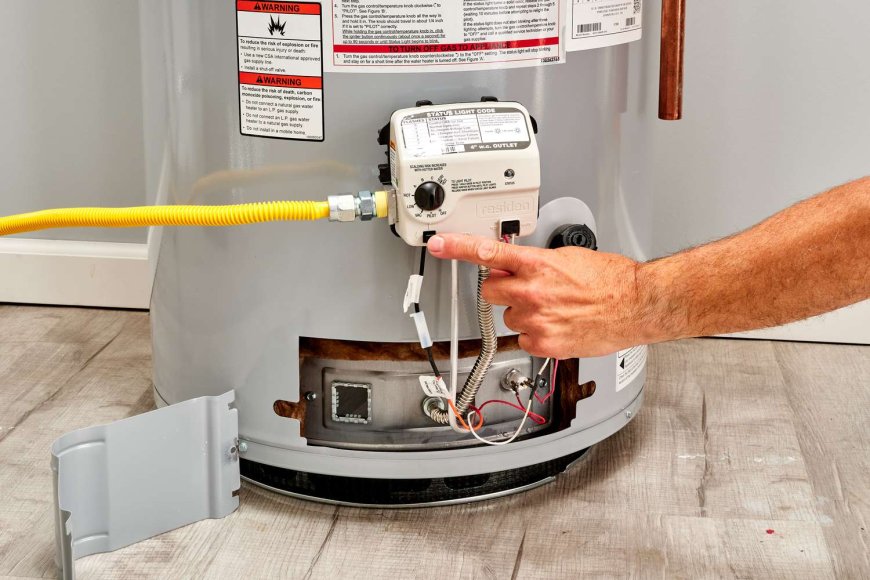Expert Advice on Preventing Hot Water Heater Fires

Hot water heaters are essential appliances in our homes, providing the comfort of warm water for daily use. However, they can also pose significant fire hazards if not properly maintained or used.
Understanding the risks and taking preventive measures can help ensure the safety of your home and family. Here, we provide expert advice on preventing hot water heater fires.
Understanding the Risks
Common Causes of Hot Water Heater Fires
Several factors can lead to a hot water heater fire, including:
Faulty Installation: Incorrect installation of the heater can lead to electrical malfunctions or gas leaks.
Lack of Maintenance: Over time, sediment build-up, corrosion, and wear and tear can create hazardous conditions.
Improper Ventilation: Gas-powered heaters require proper ventilation to avoid the build-up of flammable gases.
Electrical Issues: Faulty wiring or electrical components can cause sparks or overheating.
Gas Leaks: Leaking gas from connections or valves can ignite and cause a fire.
Warning Signs of a Potential Fire Hazard
Being aware of the warning signs can help you address issues before they escalate into a fire.
Look out for:
Strange Noises: Popping, banging, or hissing sounds could indicate sediment build-up or other issues.
Burnt Odors: A burning smell near the heater might signal electrical problems or overheating components.
Visible Corrosion or Rust: Corroded parts are more prone to failure and can lead to gas or water leaks.
Water Discoloration: Rusty or cloudy water might be a sign of internal corrosion.
Frequent Pilot Light Outages: For gas heaters, this can indicate a problem with the gas supply or burner.
Preventive Measures
Regular Maintenance and Inspections
Routine maintenance and inspections are crucial for preventing hot water heater fires.
Here’s what you should do:
Annual Professional Inspections: Hire a licensed technician to inspect your heater annually. They can identify and fix potential issues.
Sediment Flushing: Flush your tank every six months to remove sediment build-up, which can cause overheating.
Anode Rod Replacement: Replace the anode rod every few years to prevent corrosion inside the tank.
Check for Leaks: Regularly inspect for water or gas leaks around the heater.
Test the Pressure Relief Valve: Ensure the pressure relief valve is working correctly to prevent excessive pressure build-up.
Proper Installation and Placement
Ensuring your hot water heater is correctly installed and placed is vital for safety:
Professional Installation: Always have your heater installed by a certified professional to ensure it meets safety standards.
Adequate Ventilation: Ensure proper ventilation for gas heaters to avoid the accumulation of dangerous gases.
Safe Distance from Combustibles: Keep the heater at a safe distance from flammable materials like papers, cleaning supplies, and fabrics.
Secure Mounting: Ensure the heater is securely mounted and stable to prevent tipping or movement.
Electrical and Gas Safety
Follow these guidelines to ensure the electrical and gas components of your heater are safe:
Electrical Inspections: Have a qualified electrician inspect the wiring and electrical components of your heater.
Gas Line Checks: Regularly inspect gas lines for leaks or damage. Use a gas detector to identify leaks early.
Proper Grounding: Ensure the heater is properly grounded to prevent electrical shocks or fires.
Install a Carbon Monoxide Detector: For gas heaters, a carbon monoxide detector can alert you to dangerous gas leaks.
Emergency Preparedness
What to Do in Case of a Fire
Despite all precautions, emergencies can still happen.
Here’s what to do if a fire starts:
Shut Off the Power/Gas: Immediately turn off the power supply or gas valve to the heater.
Use a Fire Extinguisher: If it’s safe to do so, use a fire extinguisher to put out small fires.
Evacuate and Call 911: If the fire is uncontrollable, evacuate your home and call emergency services.
Do Not Use Water: Never use water to extinguish an electrical or gas fire, as it can cause explosions or electrical shocks.
Fire Safety Equipment
Having the right safety equipment can make a significant difference in an emergency:
Smoke Alarms: Install smoke alarms near the heater and throughout your home.
Fire Extinguishers: Keep a fire extinguisher accessible in areas where heaters are installed.
Fire Blankets: Have fire blankets available for quickly smothering small fires.
Result
Preventing hot water heater fires involves a combination of regular maintenance, proper installation, and emergency preparedness.
By staying vigilant and following expert advice, you can significantly reduce the risk of a fire and ensure the safety of your home and family.
Always prioritize safety and consult professionals when dealing with hot water heater issues.
What's Your Reaction?























